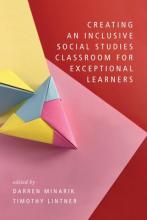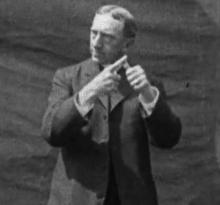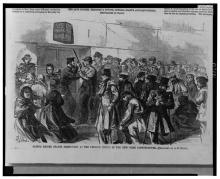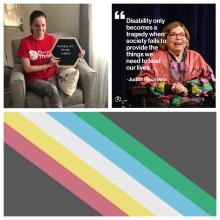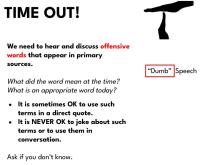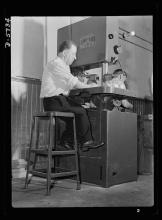Leah M. Bueso, University of Illinois Springfield, and Rich Cairn, Emerging America published a groundbreaking foundation and guide to organizing student-led civic engagement projects that are fully accessible to and inclusive of students with disabilities and all learners.
Developing the Civic Engagement of Students with Disabilities: Inclusive Civic Action Projects
Published on Sun, 07/07/2024
Disability in the Gilded Age and Progressive Era
Published on Tue, 06/11/2024
By Rich Cairn, History, Civics & Social Studies Inclusion Specialist, CES
Teaching about Disability in the Gilded Age and Progressive Era
Slides from presentation by Rich Cairn at the virtual conference: A More Perfect Union: Exploring America's Story in the Gilded Age and Progressive Era, June 17, 2024
Framework for Inclusion: Physical, Pedagogical, and Narrative Accessibility
Published on Mon, 12/11/2023
A Comprehensive Approach to Full Inclusion
Effective implementation for all learners, especially the 7.5 million Special Education students in the United States, requires careful consideration of accessibility. In particular, educators must pay attention to critical accessibility principles:
Disability History Is Essential History - 2023 Report on the Teaching of Disability History
Published on Tue, 09/05/2023
Emerging America 2023 Survey on the Teaching of Disability History
By Rich Cairn, Emerging America
At the end of the 2021-2022 and 2022-2023 school years, Emerging America widely promoted an online survey of teachers to discover how much they teach disability history. Though the response has been small, the results offer intriguing insights.
Disability Pride
Published on Fri, 08/11/2023
Celebrating A Natural and Beautiful Part of Human Diversity
Guest post by Stephanie Polito
July marks the anniversary of the Americans with Disabilities Act, the landmark legislation passed on July 26, 1990, that broke down barriers to inclusion in society. Disability Pride Month was first celebrated that same year, taking place in Boston, Massachusetts in the US. Celebrations follow, with the first parade taking place in Chicago in 2004.
Time Out – Spotlight Offensive Language in Primary Sources
Every unit of the Reform to Equal Rights: K-12 Disability History Curriculum includes an introduction to the topic of disability, including strategies to address disrespectful vocabulary.
New Teaching Resource: Time Out – Spotlight Offensive Language in Primary Sources
Published on Thu, 04/27/2023
Every unit of the Reform to Equal Rights: K-12 Disability History Curriculum includes an introduction to the topic of disability, including strategies to address disrespectful vocabulary.
Why Teach Disability History? 2023
Published on Wed, 02/08/2023
"Why Didn't Anyone Teach Me This?"
Reform to Equal Rights: K-12 Disability History Curriculum is now open!
Tools for Digital Literacy
Published on Thu, 01/12/2023
Ensure that your digital education projects are fully accessible.
By Rich Cairn
When the Library of Congress launched the national “library service for blind patrons” (NLS) in 1931, it marked a key point in the history of intellectual, professional, and civic life for disabled Americans. The U.S. Government would henceforth take the leading role in ensuring that news, research, literature, and ideas are available nationwide for blind and visually impaired Americans.

